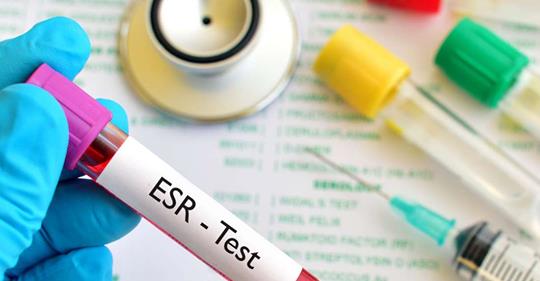
(Daniel Murrell, MD/ Medical News Today) — The ESR test measures the erythrocyte sedimentation rate, which is how quickly red blood cells settle at the bottom of a blood sample. Doctors cannot use the results of the test to diagnose a specific disease because many different health conditions can cause the ESR to be high or low.
Doctors call the ESR test a nonspecific test, as it only confirms the presence or absence of inflammatory activity in the body. Doctors typically use other lab tests, clinical findings, and the person’s health history alongside ESR test results to make a diagnosis.
Inflammation usually occurs in the body as a result of underlying medical conditions, such as infection, cancer, or an autoimmune disease.
- rheumatoid arthritis, an autoimmune condition that causes inflammation in the joints
- temporal arteritis, a type of blood vessel inflammation
- polymyalgia rheumatica, a complication of temporal arteritis
- systemic vasculitis, inflammation of the lining of the blood vesselsDoctors also use the ESR test to monitor how conditions, such as those below, are progressing or responding to treatment.
(…)
[button href=“https://www.medicalnewstoday.com/articles/323057.php” arrow=”true” new_tab=”true”]read full story[/button]
Categories
